We had 11... so why not 12? The Crush range is further expanded with the addition of Crush Coconut, using 15% coconut processing residues.
If you already know Crush you will be aware of all its ecological characteristics. The innovative production process developed by Favini for this paper exploits the principles of the circular economy. The residues from the transformation of 11 products, and from today 12, are all of vegetable origin such as coffee, citrus fruits, lavender, almonds and much more, are used to replace up to 15% of virgin tree cellulose to produce an ecological paper.
Additionally, Crush paper contains 40% post-consumer recycled cellulose, it is biodegradable and recyclable, and its emissions have been eliminated. Forming part of Paper from Our Echosystem, a collection of our most environmentally friendly papers.
Crush is now available in the coconut version!
Around 700 million litres of coconut water are consumed globally each year. But what happens to the shell that surrounds this refreshing fruit?
Let’s find out together by retracing the life cycle of coconut used in our Crush Story from Coconut to paper, passing through the numerous processes and uses of the by-products from a circular economy perspective.
Coconut Crush story: A story of circular economy from palm to paper
Coconut residues are used in two ways to create Coconut Crush: We are able to recover both the coir and the shell of this exotic fruit! But how does this magic happen?
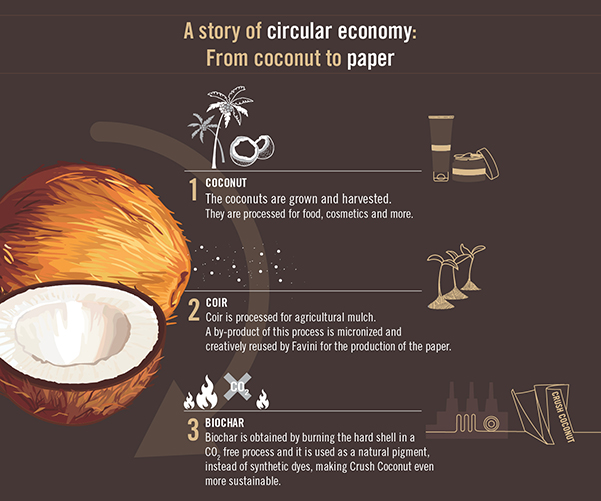
After cultivation and harvesting, coconut is used for food, the cosmetic industry and within other industrial sectors. The coir that cannot be used for these areas is used as a mulch and it is with the residues from this process, that Favini intervenes!
This material is recovered, micronized and added to the paper, replacing valued virgin cellulose. It gives a unique texture and tactile feel to the paper whilst helping the planet.
So … what’s different when compared to the other Crush ingredients?
In addition to using the coir, we are also able to recover the shell! In fact, the very dark, almost black colour of the paper is created specifically by the shell.
It undergoes an emission-free combustion process that produces organic charcoal by sequestrating CO2 from the atmosphere. The charcoal is added into the paper, making its shade.
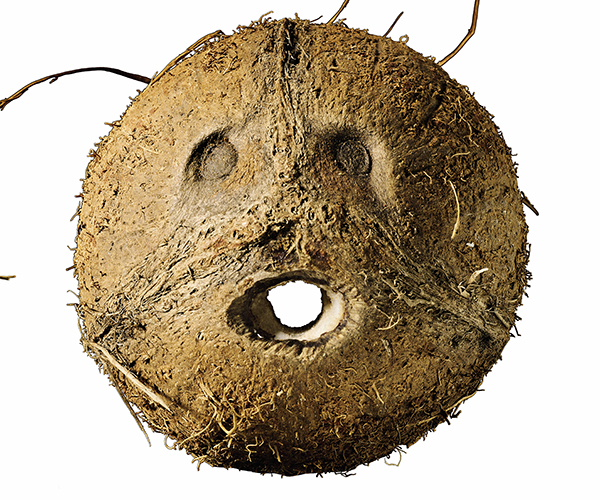
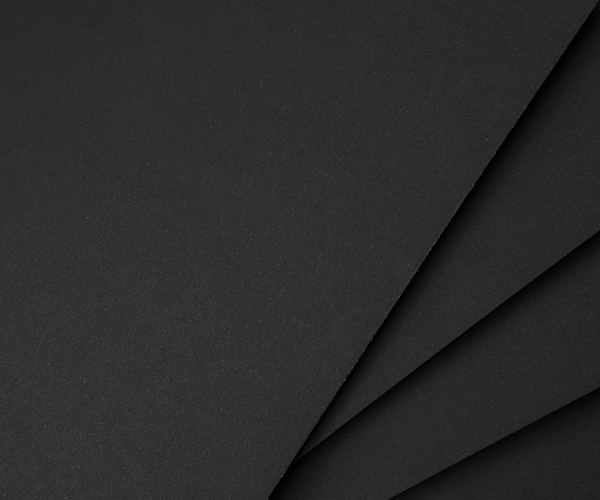
Favini intervenes by reusing the coir and the coconut shell with a circular economy approach to produce a high quality ecological paper.
Crush Coconut is the eco-sustainable paper created by Favini which starts its production journey with the sourcing of coconut processing by-products. It is the first paper that replaces up to 15% of cellulose from trees.
In addition to coconut by-products, Favini also use the process residues of kiwi, corn, coffee, almonds, hazelnuts, olives, lavender, grapes, cocoa, citrus and cherries.
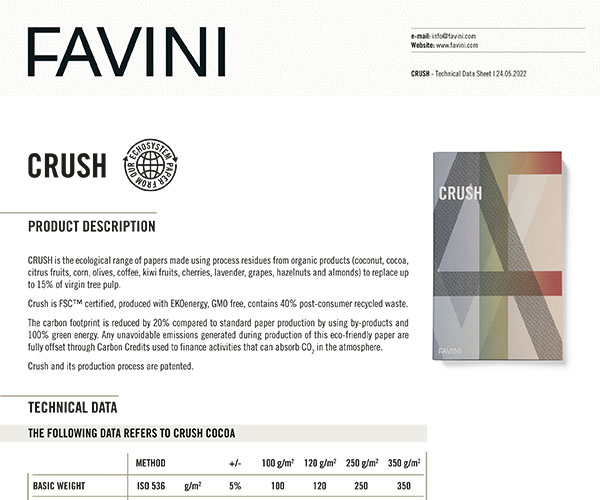
The result? A luxurious and sustainable paper, suitable for packaging and publishing. Crush is recyclable, biodegradable and FSCTM certified.
A print example? Look at the effect we have achieved!
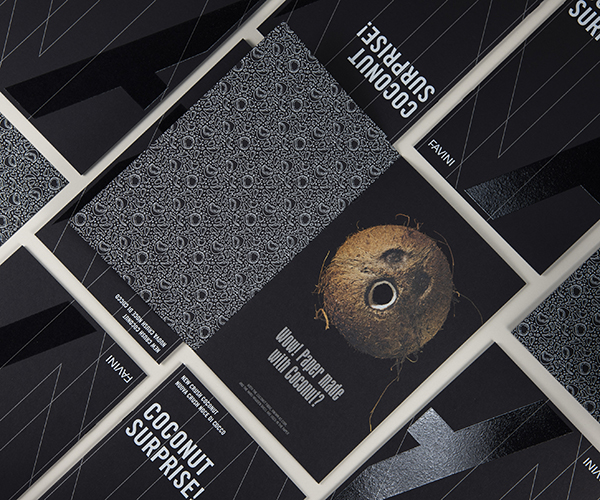
UV litho for the text pages and screen print for the cover: different printing techniques on a single paper. Have fun exploring the many print possibilities!
Have you used our ecological Crush paper and want to share the result on our social media channels? Write your piece of circular economy history to [email protected].
Continue to follow the Crush Story:
- From bean to Crush Coffee
- From cherry tree to Crush Cherry paper
- From flower to Crush Lavender
- From corn crop to Crush paper
- From vineyard to Crush Grape
- From nut kernels into Crush paper
- From field to Crush Barley
- From kiwi fruit to the ecological paper Crush
- From olive grove to the ecological paper Crush
- From the bean to Crush Cocoa
- From citrus fruit to paper


